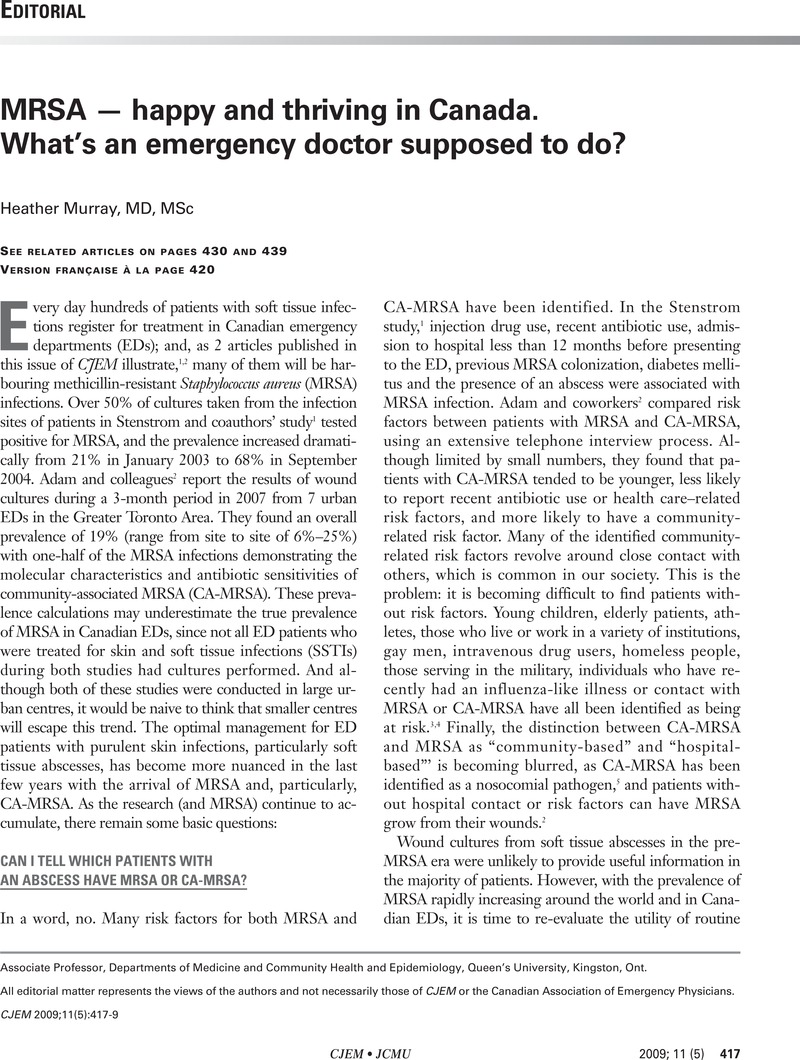Crossref Citations
This article has been cited by the following publications. This list is generated based on data provided by Crossref.
Bartoszko, Jessica J.
Mertz, Dominik
Thabane, Lehana
and
Loeb, Mark
2018.
Antibiotic therapy for skin and soft tissue infections: a protocol for a systematic review and network meta-analysis.
Systematic Reviews,
Vol. 7,
Issue. 1,



